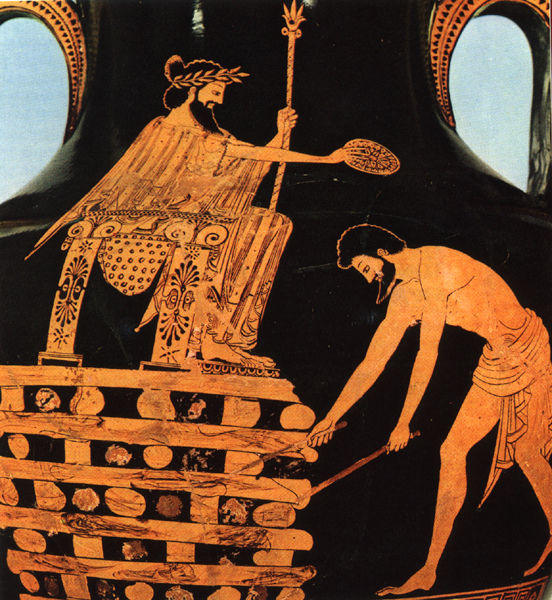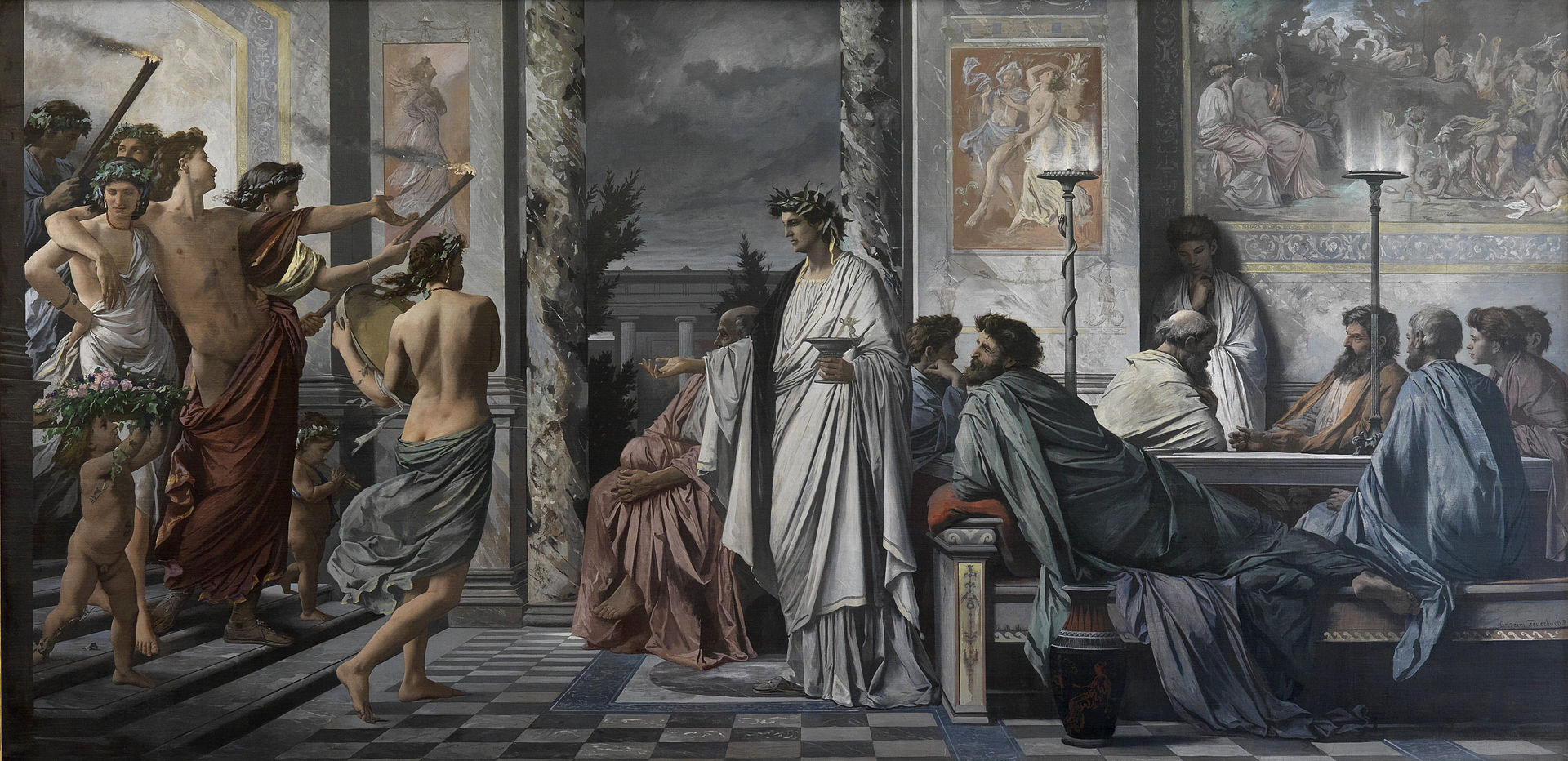- Instructor of record: Asya Sigelman

Greek 101 introduces the student to one of the greatest prose authors of ancient Greece, the historian, Herodotus. The “Father of History”, as Herodotus is sometimes called, wrote one of the earliest lengthy prose texts extant in Greek literature in the Ionian dialect of Greek. His historie or inquiry into the events surrounding the invasions by the Persian empire against the Greek city-states set the precedent for all subsequent historical writings, although his aims and methods have always remained controversial (as the sneers of his near contemporary, Thucydides, attest). The “Father of Lies”, as he is also sometimes known, wove into his history a number of fabulous and entertaining anecdotes and tales. Although these stories have often been dismissed as meaningless digressions or credulous traveler's tales, each story is neatly crafted within the larger framework of the work, not only providing interesting diversions for the reader but linking together many of Herodotus' themes and ideas within the work. Herodotus remains the primary (and often only) source for much information about the culture and history of Greece and the other societies around the Mediterranean basin in the Archaic period.
Through reading the prose narrative of Herodotus, students will gain fluency in the reading of ancient Greek prose and develop strategies for the comprehension of the text. The class will provide opportunities to review the morphology and syntax of the Greek language and to build upon the vocabulary learned in the first year, as well as to learn the differences in Herodotus’ Ionian dialect from the dialects of Attic and Koine. Students will also expand their understanding of the cultural context in which Herodotus worked, as well as the tradition of historiography that stems from his work. The course will also introduce students to the tradition of scholarship, starting in antiquity, that has examined Herodotus and to the tools with which scholars ancient and modern have used to understand his narrative.
Through reading the prose narrative of Herodotus, students will gain fluency in the reading of ancient Greek prose and develop strategies for the comprehension of the text. The class will provide opportunities to review the morphology and syntax of the Greek language and to build upon the vocabulary learned in the first year, as well as to learn the differences in Herodotus’ Ionian dialect from the dialects of Attic and Koine. Students will also expand their understanding of the cultural context in which Herodotus worked, as well as the tradition of historiography that stems from his work. The course will also introduce students to the tradition of scholarship, starting in antiquity, that has examined Herodotus and to the tools with which scholars ancient and modern have used to understand his narrative.
- Instructor of record: Radcliffe Edmonds

Greek 201 is designed to introduce the student to two of the greatest prose authors of ancient Greece, the philosopher, Plato, and the historian, Thucydides. These two writers set the terms in the disciplines of philosophy and history for millennia, and philosophers and historians today continue to grapple with their ideas and influence.
The Symposium (or Drinking Party) of Plato provides an engaging introduction to the philosophy of Plato in its depiction of Plato’s teacher, Socrates, discussing eros at an Athenian drinking party. The Symposium also reveals Plato’s mastery of the Greek language as he creates the speeches of a number of different individuals, including the famous comic poet Aristophanes and the tragedian Agathon. Particularly memorable is the speech of the brilliant statesman Alcibiades, who crashes the party and provides a drunken eulogy of Socrates before compelling everyone to drink heavily for the rest of the evening.
Alcibiades provides a link between the two texts in this course. The sixth book of Thucydides’ History of the Peloponnesian War is concerned with the beginnings of the Athenian Sicilian expedition, Athens’ greatest disaster in the Peloponnesian War. The Sicilian expedition was urged and undertaken by Alcibiades, and his spectacular downfall and defection during the mission perhaps doomed it to failure. In this course we will examine the ways in which both writers handle the figure of Alcibiades as a point of entry into the comparison of the varying styles and modes of thought of these two great writers. Through this course, students should improve their fluency with standard Attic prose and gain an appreciation of the complexities and nuances of Greek style in the texts of two of the greatest prose writers. Students should also increase their understanding of the cultural context in which these texts were produced, as well as of the scholarly tradition that has engaged with these texts for over two millennia.
The Symposium (or Drinking Party) of Plato provides an engaging introduction to the philosophy of Plato in its depiction of Plato’s teacher, Socrates, discussing eros at an Athenian drinking party. The Symposium also reveals Plato’s mastery of the Greek language as he creates the speeches of a number of different individuals, including the famous comic poet Aristophanes and the tragedian Agathon. Particularly memorable is the speech of the brilliant statesman Alcibiades, who crashes the party and provides a drunken eulogy of Socrates before compelling everyone to drink heavily for the rest of the evening.
Alcibiades provides a link between the two texts in this course. The sixth book of Thucydides’ History of the Peloponnesian War is concerned with the beginnings of the Athenian Sicilian expedition, Athens’ greatest disaster in the Peloponnesian War. The Sicilian expedition was urged and undertaken by Alcibiades, and his spectacular downfall and defection during the mission perhaps doomed it to failure. In this course we will examine the ways in which both writers handle the figure of Alcibiades as a point of entry into the comparison of the varying styles and modes of thought of these two great writers. Through this course, students should improve their fluency with standard Attic prose and gain an appreciation of the complexities and nuances of Greek style in the texts of two of the greatest prose writers. Students should also increase their understanding of the cultural context in which these texts were produced, as well as of the scholarly tradition that has engaged with these texts for over two millennia.
- Instructor of record: Radcliffe Edmonds
- Instructor of record: Radcliffe Edmonds
- Instructor of record: Catherine Conybeare
- Instructor of record: Annette Baertschi
- Instructor of record: Asya Sigelman
